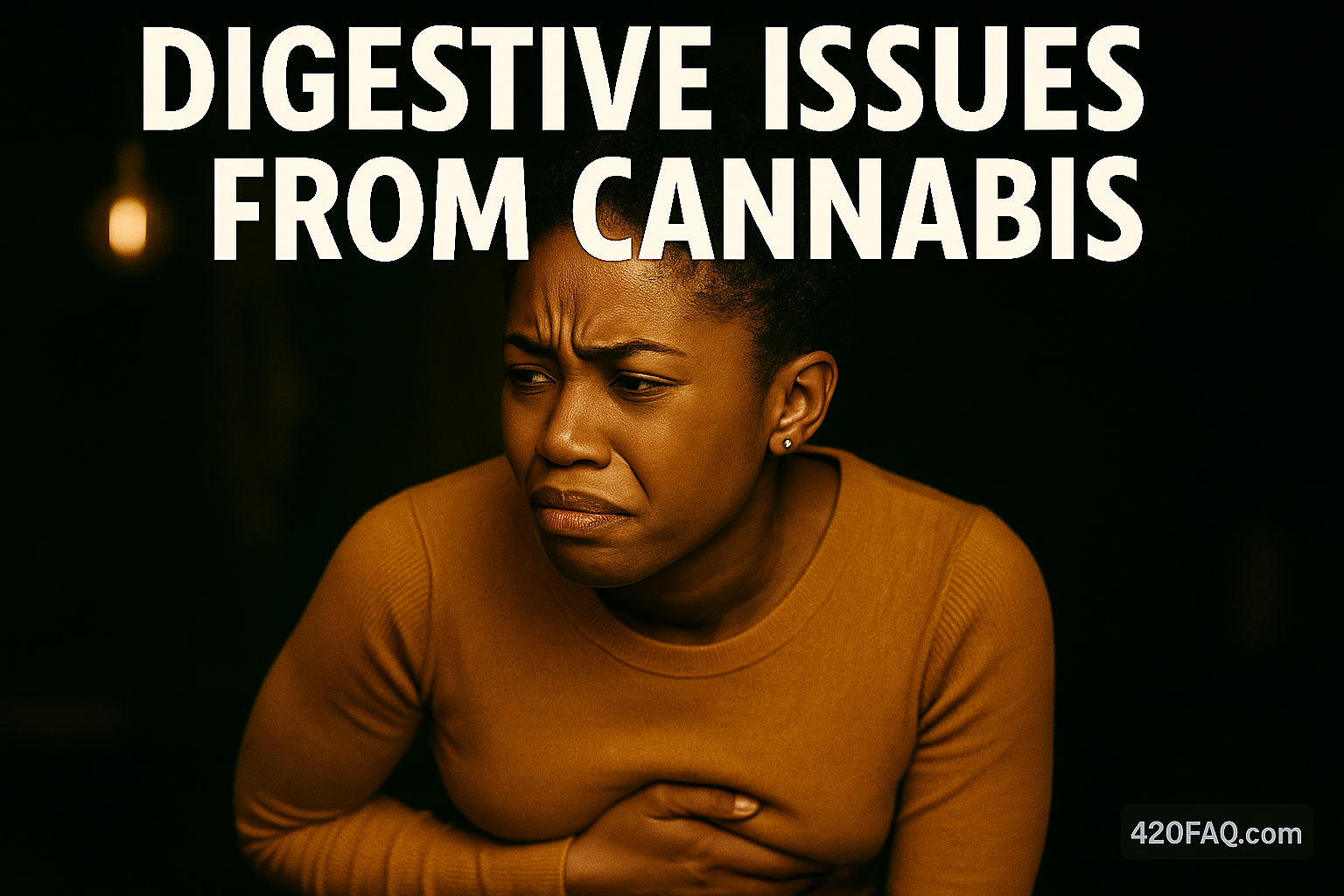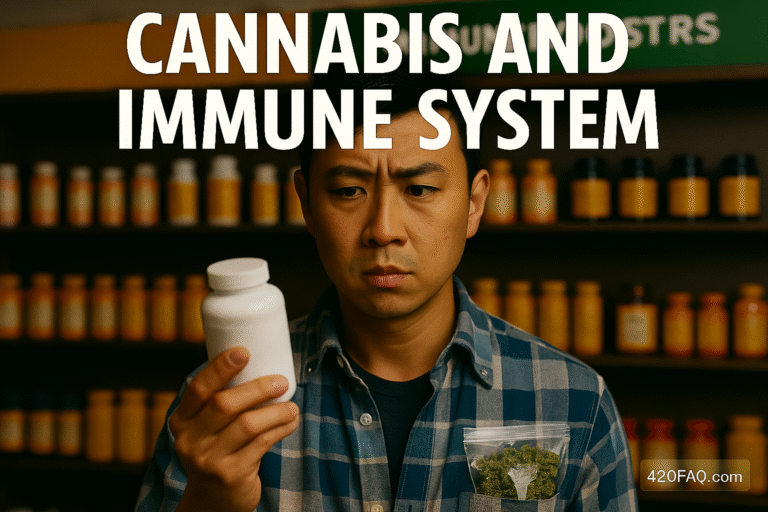
Marijuana and Crohn’s Disease: Comprehensive Guide to Cannabis and Inflammatory Bowel Health
Crohn’s disease is a chronic inflammatory bowel condition that disrupts the digestive tract, often leading to pain, diarrhea, weight loss, and reduced quality of life. While pharmaceutical treatments exist—ranging from corticosteroids to biologic therapies—many patients explore cannabis as a complementary therapy. Recent research and patient testimonials highlight marijuana’s potential role in symptom management, though clinical consensus remains under development.
This article examines how marijuana interacts with Crohn’s disease, explores scientific evidence, highlights therapeutic considerations, and addresses both benefits and limitations of cannabis as a treatment option.
Understanding Crohn’s Disease
Crohn’s disease is an autoimmune-driven inflammatory disorder primarily affecting the small intestine and colon. Patients may experience flare-ups characterized by abdominal pain, bloody stools, fatigue, and malnutrition. The exact cause is not fully understood but involves immune dysfunction, genetics, and environmental triggers.
Conventional treatments target inflammation through immune suppression, but these medications often have side effects and do not work for every patient. This therapeutic gap has fueled interest in medical cannabis as an adjunct option.
The Endocannabinoid System and Digestive Health
The body’s endocannabinoid system (ECS) plays a central role in regulating inflammation, pain, and gastrointestinal motility. Cannabinoid receptors (CB1 and CB2) are present throughout the digestive tract, making them direct targets for plant-derived cannabinoids like THC (tetrahydrocannabinol) and CBD (cannabidiol).
- CB1 receptors influence gut motility and visceral pain.
- CB2 receptors help regulate immune cell activity and inflammation.
This biological alignment has led researchers to explore cannabis as a potential therapy for Crohn’s and other inflammatory bowel diseases (IBD).
Clinical Evidence: What Research Shows
Several studies suggest cannabis may help patients with Crohn’s disease manage symptoms. Patients report improvements in appetite, sleep, and overall well-being. Small-scale clinical trials have observed reductions in disease activity and steroid dependence in some participants.
For example, one controlled trial published in the journal Clinical Gastroenterology and Hepatology found that inhaled cannabis improved symptoms in Crohn’s patients who had not responded to conventional therapies. However, larger trials with standardized dosing remain limited.
For a comprehensive review of published studies, see:
Use of Medical Cannabis in Patients With Inflammatory Bowel Disease.
Patient Perspectives and Reported Benefits
Patients with Crohn’s disease frequently report:
- Reduced abdominal pain and cramping.
- Improved appetite and weight stabilization.
- Better sleep quality during flare-ups.
- Decreased reliance on opioids and corticosteroids.
These anecdotal benefits highlight marijuana’s potential as a supportive therapy, though they also underscore the need for clinical validation.
Risks and Considerations
While cannabis shows promise, it is not without potential drawbacks:
- Long-term use of high-THC cannabis may affect memory, cognition, and mood.
- Smoking may irritate the lungs, prompting many patients to prefer vaporizers, tinctures, or edibles.
- Cannabis is not a cure for Crohn’s disease—it primarily addresses symptoms, not root inflammation.
- Clinical guidelines remain limited, requiring patients to work closely with healthcare providers.
The Crohns Colitis Foundation provides educational resources and research updates for patients considering cannabis therapy.
Medical Cannabis and Crohn’s: Routes of Administration
Different methods of consuming cannabis may produce varying effects for Crohn’s patients:
- Inhalation (smoking or vaporizing): Rapid onset of symptom relief, though effects are shorter-lived.
- Edibles: Longer duration but delayed onset, making dosing harder to control.
- Oils and tinctures: Allow precise dosing and sublingual absorption.
- Capsules: Convenient and discreet but slower acting.
Choosing the right method depends on patient preferences, tolerance, and therapeutic goals.
The Legal Landscape
Cannabis laws vary widely by state and country. In many U.S. states, Crohn’s disease is a qualifying condition for medical marijuana access. However, patients must adhere to state-specific regulations for eligibility, purchase, and possession.
Frequently Asked Questions About Marijuana and Crohn’s Disease
Does cannabis cure Crohn’s disease?
No. Cannabis is not a cure but may help manage symptoms like pain, nausea, and appetite loss. Conventional therapies remain essential for disease control.
Which cannabinoids are most effective for Crohn’s disease?
THC provides pain relief and appetite stimulation, while CBD offers anti-inflammatory properties without intoxication. Many patients benefit from balanced formulations.
Can cannabis reduce inflammation in the gut?
Research suggests cannabis may reduce inflammatory signals through CB2 receptor activation, but clinical evidence is still emerging.
Is medical marijuana safe for long-term Crohn’s management?
Long-term effects require further study. While many patients report sustained benefits, potential cognitive or psychiatric effects of chronic high-THC use must be monitored.
What’s the best way to use cannabis for Crohn’s disease?
Many patients prefer tinctures or vaporizers for controllable dosing. Consultation with a medical provider ensures safer integration with existing treatments.
Can cannabis help patients who don’t respond to traditional therapies?
Yes. Some patients refractory to steroids and biologics have reported meaningful improvements with cannabis, though individual responses vary.
Does CBD alone help with Crohn’s symptoms?
CBD may reduce inflammation and improve quality of life, but some evidence suggests the entourage effect (CBD + THC) provides stronger symptom relief.
Conclusion
Marijuana represents a promising complementary therapy for Crohn’s disease, offering relief for pain, appetite loss, and overall well-being. While not a cure, cannabis aligns with the body’s endocannabinoid system in ways that may support digestive health. Continued clinical research, patient-provider collaboration, and careful regulation will determine its long-term role in Crohn’s treatment strategies.







